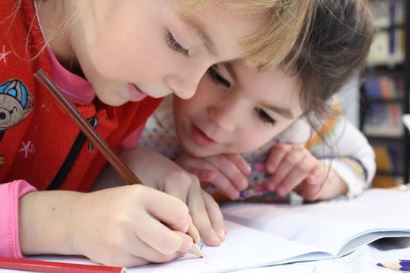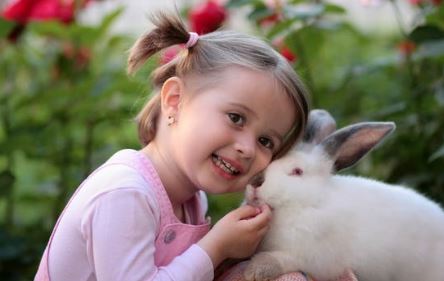Child Mental Health Awareness

September is a month of celebration in the southern hemisphere. It marks the end of winter with its cold and dark weather and heralds new beginnings and fresh starts. It’s a time of renewal, new opportunities and immense growth spurts. This month is also the time to become aware of child mental health.
According to the APA (American Psychological Association) approximately one out of every five children in America has a diagnosable mental health disorder. In South Africa (SADAG, 2004) statistics for child mental health are scares and the statistical figures are mostly focused on the adult mental health population. According to these statistics it appears as if 16.5% of South Africa’s population suffer from some or other form of mental disorder. This translates to one in every six adults. If we then consider Kessler’s findings as referenced by Paruk (2016) that about 20% of children and adolescents have a mental health disorder and that approximately half of all mental illnesses and substance related problems start at the age of 14 years, then it is clear why it is important to focus on child mental health. To read this article simply go to www.samj.org.za/index.php/samj/article/viewFile/10943/7387
Mental health problems in young people are associated with outcomes such as suicide, substance use, inability to live independently, trouble with the law, school dropout, difficulty with employment, and physical health problems to name but a few.
Untreated mental health needs among children and youth affect not only the young person and their family, but also schools, communities, workplaces and the nation as a whole.
But what is meant with the term Mental Health? Mental health is an essential part of children’s overall health. It has a complex interactive relationship with their physical health and their ability to succeed in school, at work and in society. Both physical and mental health affect how we think, feel and act on the inside and outside.
The diagnosing and treatment of mental health issues in children are thus, very important. Most importantly the treatment should be multi-disciplinary based.
Clinical psychologists have a particularly important role to play in the diagnostic and treatment regime of the child as well as in the development of intervention programs in collaboration with other stakeholders ,such as, social workers, care givers, parents and so forth. The extent of contributing and complicating factors on children’s mental health issues are better explained by UNICEF’s research into this. Please read their findings, pertaining to the South African context at www.unicef.org/southafrica/SAF_resources_factschildrens22.pdf

Research in psychology has contributed to the development of more effective treatment and prevention of mental health disorders in children, youth, and families, including programs targeting expectant mothers, children in school settings, and youth transitioning into adulthood and programs working at the following levels

Individual

Peer

Family

School

Community

Systemic

Psychologists working with children and youth are also trained to take into account developmental considerations on identity, emotional, social, cognitive and biological bases.
Culture, ethnicity and language also mediates the behaviour of children and adolescents in numerous ways and as a result affects the methods of prevention and treatment of mental health disorders. As such psychologists have developed tools to assess the risk and protective factors for the mental health of children and youth, to test them for behavioural or emotional problems, and to continually monitor treatment progress.
Psychologists have also designed programs that effectively engage families, schools and communities, that is, the critical social supports that can guarantee lasting well-being for children and youth. For example, one successful family-centered program aimed at decreasing alcohol use in pre-teens engages parents and caregivers by training them on parenting skills such as setting limits, expressing clear expectations about substance abuse, communication and discipline while also simultaneously training youth on resistance skills and how to develop negative attitudes toward alcohol.
In conclusion, children’s mental health issues are extremely important. With so many influencing factors and relatively few specialised interventions available it is especially pertinent that we, as a community, embrace the age-old African proverb “It takes a village to raise a child” seriously to heart. Remember, children grow up and turn into tomorrow’s villains or heroes, we all have a role to play in their development.
I think the song “Scorn not his simplicity” summarises the above beautifully. Granted it was written by Phil Coulter (song writer) and performed by Sinead O’Conner, after his son was diagnosed with Down Syndrome, but the lyrics fit in well with children who experience mental health issues, especially when these issues are environmentally related (caused).
"Scorn Not His Simplicity"
See the child
With the golden hair
Yet eyes that show the emptiness inside
Do we know
Can we understand just how he feels
Or have we really tried
See him now
As he stands alone
And watches children play a children’s game
Simple child
He looks almost like the others
Yet they know he’s not the same
Scorn not his simplicity
But rather try to love him all the more
Scorn not his simplicity
See him stare
Not recognizing the kind face
That only yesterday he loved
The loving face
Of a mother who can’t understand
what she’s been guilty of
How she cried, tears of happiness
the day the doctor told her it’s a boy
Now she cries tears of helplessness
and thinks of all the things he can’t enjoy
Scorn not his simplicity
But rather try to love him all the more
Scorn not his simplicity
Only he knows how to face the future hopefully
Surrounded by despair
He won’t ask for your pity or your sympathy
But surely you should care
Scorn not his simplicity
But rather try to love him all the more
Scorn not his simplicity